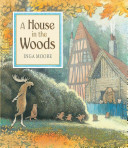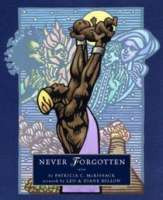
This book introduces the different culinary regions of Brazil and presents many kinds of recipes for traditional Brazilian dishes.
Catalog sorted by age group

This book introduces the different culinary regions of Brazil and presents many kinds of recipes for traditional Brazilian dishes.

Find out what animals say to each other when they think humans aren’t listening! From amorous stink bugs to territorial dogs, from wise old elephants to monkeys with a grudge, “Talk, Talk, Squawk!” has everything you need to know about animals and how and why they communicate. Covering topics of mating, predation, language, territory and looking at all the different ways that animal talk, including smell, touch, colour and sound, “Talk, Talk, Squawk!” is biology made fun and accessible. It comes with hugely entertaining drawings by artist Neal Layton. It is a companion title to “Extreme Animals” (9781406305593) and “Poo” (9781844287512), which has sold over 100,000 copies worldwide. It is a fun and appealing introduction to biology for children. It features witty illustrations from an award-winning illustrator.

This Little Pig has made a lovely little den for herself in the woods, and that Little Pig has built a small hut right next door. One morning they return from a walk to find that their big friend Bear has moved into the little den and their even larger friend Moose has moved into the little hut. It’s very nice to have friends live with you, but not so nice when both homes collapse! But what if they find a way to build a house in the woods that all four of them can share? With atmospheric illustrations and a cast of endearing, industrious character, Inga Moore constructs an inviting story of friendship that kids will be happy to visit.

In this cumulative, rhyming story, a young boy takes a nighttime ride from the distant stars in the Milky Way galaxy to his cozy bed, as his blanket becomes a rocket, a plane, and a skateboard.

Come along on an extraordinary wildlife adventure!
Every spring, millions of animals, including gray whales, white cranes, wolves, and caribou, set off from around the world on a long journey north. Follow them as they fly, swim, or walk hundreds, even thousands, of miles to the Arctic, where they’ll feed and breed all summer.
Combining powerful, poetic words and stunning illustrations, wildlife author Nick Dowson and sward-winning Illustrator Patrick Benson team up to celebrate the greatest journey on Earth.

A mother relates the events of a peaceful day along the banks of Lake Tanganyika to her baby, wrapped up and ready for sleep.

This book presents accounts of narrow escapes executed by oppressed individuals and groups while illuminating social issues and the historical background that led to wars in Sudan and the orphaned refugees known as the ‘Lost Boys’.

This gorgeous picture book by Newbery Honor winner Patricia C. McKissack and two-time Caldecott Medal-winning husband-and-wife team Leo and Diane Dillon is sure to become a treasured keepsake for African American families. Set in West Africa, here is a lyrical story-in-verse about a young black boy who is kidnapped and sold into slavery, which will remind children that their slave ancestors should never be forgotten, and that family is more important than anything else.
This book introduces the different culinary regions of Thailand and presents many kinds of recipes for traditional Thai dishes.
This book presents accounts of narrow escapes executed by oppressed individuals and groups while illuminating social issues and the historical background that led to the atrocities committed in Cambodia’s “killing fields” by the Khmer Rouge.